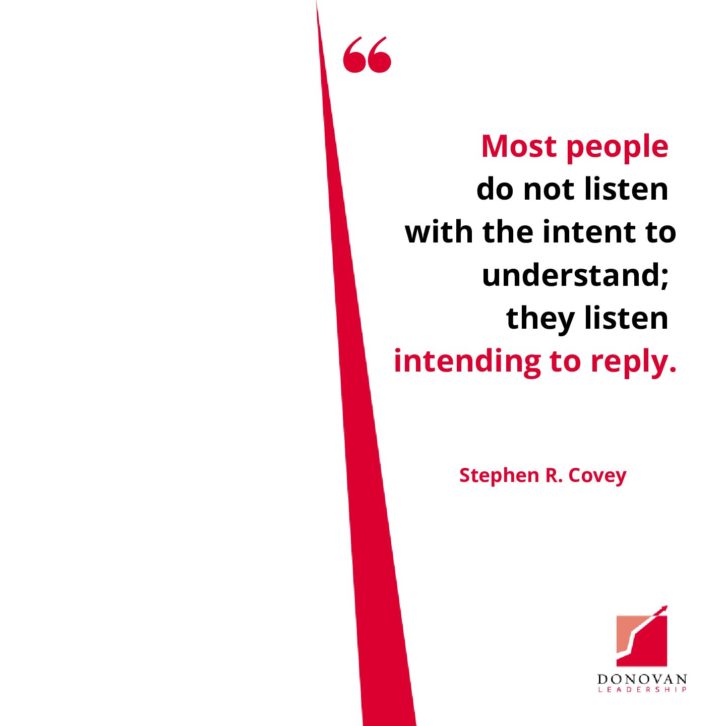One thing I notice about the charismatic leaders I have met is they are skilled listeners. When they are listening to you, it is as though you are the only person in the world. Have you had that experience? They defy the myth that executive presence is something to do with being a talented speaker. Being around such leaders is exhilarating.
I am sure you have encountered the other people who listen to what you are saying through the filter of what it means for them. They check what they are hearing against their own experience to see how it measures up. They believe they already know what you are going to say before you finish communicating. Being on the receiving end of it is a frustrating experience.
Respondents in a recent LinkedIn poll, I conducted voted listening and communication as a clear priority for leaders to develop for successful collaboration. But listening as a leadership skill is more than not speaking.
It is about being interested in the other person.
Stephen R. Covey expressed it as, “Seek First to Understand, Then to Be Understood.”
It is Habit No 5 in his timeless book, The 7 Habits of Highly Effective People.
FranklinCovey, the company that continues Covey’s work, describes this habit of empathic communication this way. “If you’re like most people, you probably seek first to be understood; you want to get your point across. In doing so, you may ignore the other person completely, pretend that you’re listening, selectively hear only certain parts of the conversation or attentively focus on only the words being said, but miss the meaning entirely.”
Because we so often listen through our own frame of reference, FranklinCovey believe we tend to respond in one of four ways.
🙅♂️ Evaluating: You judge and then either agree or disagree.
👎 Probing: You ask questions from your own frame of reference.
🙅♀️ Advising: You give counsel, advice, and solutions to problems.
🙈 Interpreting: You analyse others’ motives and behaviours based on your own experiences.
Listening to understand is as much a mindset shift as a leadership skill to be developed. The reward is more successful collaboration with people at all levels.
🙋 What is your experience of leaders who listen to understand? 🙋♀️
Best regards, Brian

